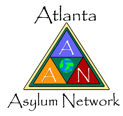BASOGLU, M., EKBLAD, S., BAARNHIELM, S., & LIVANOU, M. (2004). Cognitive-behavioral treatment
of tortured asylum seekers: a case study. Journal of Anxiety Disorders, 18(3), 357-369.
BULSTRODE, C. (1996). Asylum seekers who claim to have been tortured should have right to independent
medical examination. BMJ, 313(7060), 822.
BURNETT, A., & PEEL, M. (2001). Asylum seekers and refugees in Britain. The health of survivors of
torture and organised violence. BMJ, 322(7286), 606-609.
DAVIDSON, N., SKULL, S., BURGNER, D., KELLY, P., RAMAN, S., SILOVE, D., STEEL, Z., VORA, R., & SMITH, M.
(2004). An issue of access: delivering equitable health care for newly arrived refugee children in Australia.
[see comment]. Journal of Paediatrics & Child Health, 40(9-10), 569-575.
HARGREAVES, S. (2002). A body of evidence: torture among asylum seekers to the West. Lancet, 359(9308), 793-794.
HEISLER, M., MORENO, A., DEMONNER, S., KELLER, A., & IACOPINO, V. (2003). Assessment of torture and ill
treatment of detainees in Mexico: attitudes and experiences of forensic physicians. JAMA, 289(16), 2135-2143.
IACOPINO, V., OZKALIPCI, O., & SCHLAR, C. (1999). The Istanbul Protocol: international standards for the effective
investigation and documentation of torture and ill treatment. Lancet, 354(9184), 1117.
IACOPINO, V. (2000). Health professionals cannot be silent witnesses.[comment]. Western Journal of Medicine,
172(5), 304-305.
IACOPINO, V., KELLER, A., & OKSENBERG, D. (2002). Why torture must not be sanctioned by the United States.
Western Journal of Medicine, 176(3), 148-149.
KELLER, A. S., FORD, D., SACHS, E., ROSENFELD, B., TRINH-SHEVRIN, C., MESERVE, C., LEVISS, J. A.,
SINGER, E., SMITH, H., WILKINSON, J., KIM, G., ALLDEN, K., & ROCKLINE, P. (2003). The impact of detention
on the health of asylum seekers. Journal of Ambulatory Care Management, 26(4), 383-385.
KELLER, A. S., ROSENFELD, B., TRINH-SHEVRIN, C., MESERVE, C., SACHS, E., LEVISS, J. A., SINGER,
E., SMITH, H., WILKINSON, J., KIM, G., ALLDEN, K., & FORD, D. (2003). Mental health of detained asylum
seekers. Lancet, 362(9397), 1721-1723.
MACDONALD, B. K., MUMMERY, C. J., & HEANEY, D. (2001). Health needs of asylum seekers and refugees.
Head injury needs to be taken into consideration in survivors of torture. BMJ, 323(7306), 230.
REIS, C., AHMED, A. T., AMOWITZ, L. L., KUSHNER, A. L., ELAHI, M., & IACOPINO, V. (2004). Physician
participation in human rights abuses in southern Iraq.[see comment][erratum appears in JAMA. 2004 May
19;291(19):2316]. JAMA, 291(12), 1480-1486.
RUBENSTEIN, L., PROSS, C., DAVIDOFF, F., & IACOPINO, V. (2005). Coercive US interrogation policies:
a challenge to medical ethics. JAMA, 294(12), 1544-1549.
SILOVE, D., CURTIS, J., MASON, C., & BECKER, R. (1996). Ethical considerations in the management of
asylum seekers on hunger strike. JAMA, 276(5), 410-415.
SILOVE, D., SINNERBRINK, I., FIELD, A., MANICAVASAGAR, V., & STEEL, Z. (1997). Anxiety, depression
and PTSD in asylum-seekers: assocations with pre-migration trauma and post-migration stressors.[see comment].
British Journal of Psychiatry, 170, 351-357.
SILOVE, D., STEEL, Z., MCGORRY, P., & MOHAN, P. (1998). Trauma exposure, postmigration stressors, and
symptoms of anxiety, depression and post-traumatic stress in Tamil asylum-seekers: comparison with refugees
and immigrants. Acta Psychiatrica Scandinavica, 97(3), 175-181.
SILOVE, D., STEEL, Z., & WATTERS, C. (2000). Policies of deterrence and the mental health of asylum seekers.
JAMA, 284(5), 604-611.
SILOVE, D., STEEL, Z., & MOLLICA, R. (2001). Detention of asylum seekers: assault on health, human rights, and
social development.[see comment]. Lancet, 357(9266), 1436-1437.
SILOVE, D. (2002). The asylum debacle in Australia: a challenge for psychiatry. Australian & New Zealand Journal
of Psychiatry, 36(3), 290-296.
SINNERBRINK, I., SILOVE, D., FIELD, A., STEEL, Z., & MANICAVASAGAR, V. (1997).
Compounding of premigration trauma and postmigration stress in asylum seekers. Journal of Psychology, 131(5),
463-470.
SINNERBRINK, I., SILOVE, D., FIELD, A., STEEL, Z., & MANICAVASAGAR, V. (1997). Compounding of premigration trauma and postmigration stress in asylum seekers. Journal of Psychology, 131(5), 463-470.
STEEL, Z., SILOVE, D., BIRD, K., MCGORRY, P., & MOHAN, P. (1999). Pathways from war trauma to posttraumatic
stress symptoms among Tamil asylum seekers, refugees, and immigrants. Journal of Traumatic Stress, 12(3), 421-435.
STEEL, Z., & SILOVE, D. (2004). Science and the common good: indefinite, non-reviewable mandatory detention
of asylum seekers and the research imperative. Monash Bioethics Review, 23(4), 93-103.
WEINSTEIN, H. M., DANSKY, L., & IACOPINO, V. (1996). Torture and war trauma survivors in primary care practice.
Western Journal of Medicine, 165(3), 112-118.
|


